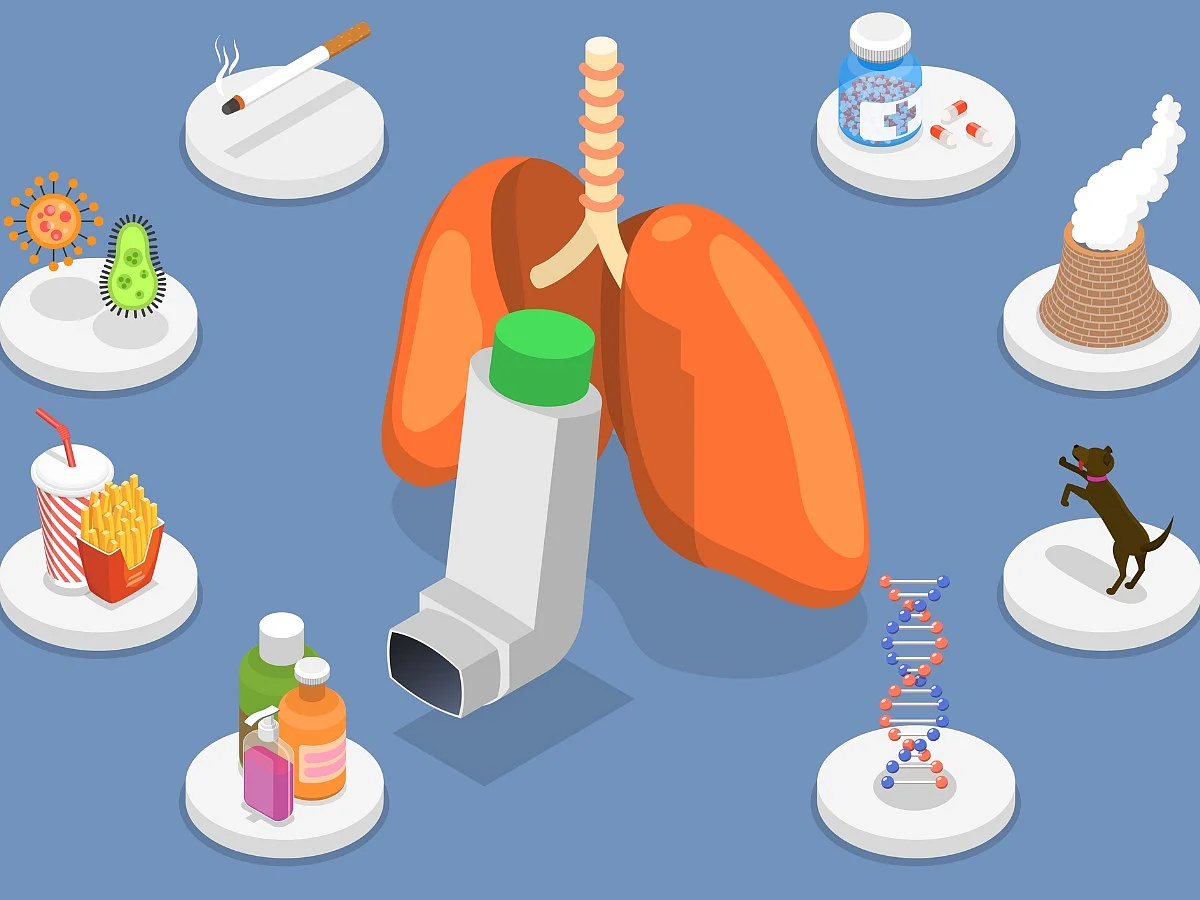7 Triggers For Asthma
Asthma can be triggered due to allergens at your home, workplace or in the environment.

advertisement
Asthma is a condition in which airways narrow due to inflammation and causes irritation due to a physiological or environmental trigger. The narrowing of the airways makes it hard to breathe during an attack. Asthma triggers are different for everyone and figuring your triggers that inflames asthma is an important part of asthma management.
Asthma is a disease which is usually characterized by chronic airway inflammation. It is defined by symptoms such as wheezing, shortness of breath, chest tightness, and cough. These symptoms vary overtime. Common allergies may trigger an asthmatic episode, which could include anything from a weather change like from summers to winters during the autumn break. Let's have a look at the common triggers for Asthma.
1. Tobacco & other pollutants
Pollutants irritate the lungs and increase airway inflammation. Tobacco smoke is especially damaging to the lungs and trigger asthma flares. Children who are exposed to environmental tobacco smoke suffer from more wheezing, more severe asthma, and longer lasting symptoms. These asthma triggers include ozone (smog), fragrances, cleaning products, and chemicals.
2. Indoor allergens
Asthma gets triggered from indoor allergens in children with allergies. These allergens include dust mites, cockroaches, mice, and pet dander. They trigger asthma flares year-round, and mostly are found in the home and in schools.
3. Furry animals
Household pets are a common indoor allergen and trigger for asthma flares. Cat and dog allergies are the most common, but hamsters, gerbils, and rabbits also tend to cause symptoms. The allergens are found in the pet's dander (skin), saliva (drool), and urine.
4. Exercise
Exercise also trigger asthma attacks in some people. This is known as exercise-induced asthma (EIA). EIA is caused by the narrowing of the airways during exercise. It is more likely to occur in cold, dry air, or after a period of inactivity and especially in people who have severe asthma.
5. Stress
Stress also acts as an asthma trigger. When a person is stressed, their breathing becomes rapid and shallow. This irritates the airways and trigger an asthma attack. It is not possible to completely avoid stressful situations, but one can take measures to help cope with stress. Mindfulness and relaxation techniques are an excellent start.
6. Cold air & changing weather
Cold and dry air are irritating to the lungs and cause airway inflammation as well as trigger asthma flares. This usually happens on a cold weather day or after exposure to a cold air conditioner. Sudden temperature changes also trigger an airway spasm and worsen asthma.
7. Insects
Children who have asthma and are allergic to insects are at higher risk for an asthma flare after a sting. The kinds of insects that cause symptoms are flying venomous insects like honey bees, wasps, hornets, or yellow jackets and fire ants. Asthma symptoms develop very quickly after a sting.
(At The Quint, we question everything. Play an active role in shaping our journalism by becoming a member today.)